Speakers
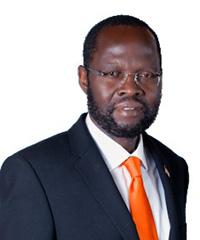
Hon. Sen. (Prof.) Peter Anyang’ Nyong’o EGH, MP
Graduated from Makerere University, Kampala, in 1971 with a BA (First Class Honours) in Political Science and Philosophy before proceeding to the
University of Chicago where he received his MA (1974) and PhD (1977) in Political Science. Taught at the University of Nairobi (1977-81), El Colegio de Mexico (1971-84) and Addis Ababa University (1984-86) then joined the
African Academy of Sciences as Head of Programs from 1987 to 1992. Having been involved in the struggle against authoritarian rule in Kenya throughout his academic career, he was among the leaders who made a break through into multiple party politics in 1992. He was then elected to Parliament in that year and has served in various capacities since then. He was Minister for Planning and National Development (2003-05) and Minister for Medical Services (2008-2013), and currently Governor of Kisumu county. He has published several books and articles on democracy, democratisation, the state and the political economy of development in Africa. Among the publications are “Popular Struggles for Democracy in Africa”, (London: Zed Books, 1987); “The Study of African Politics: A Critical Appreciation of A Heritage” (Nairobi: Ball Foundation, 2002); “A Leap Into the Future” (Nairobi: Word Alive Publishers, 2095). In 1995 he was awarded the German-African Award for his contribution to democracy and democratisation in Africa. He was recently Gro Harlem Brundland Senior Leadership Fellow in the Division of Policy Translation and Leadership Development, the Harvard School of Public Health, 2013-2014.
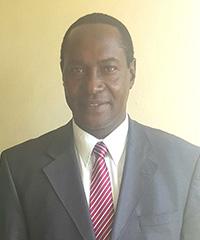
Sam Okello
Moderator
Sam Okello is a public leader and businessman. He is a former Mayor of Kisumu City with extensive experience in sustainable urban development. He has been in the forefront of investment initiative in Kisumu. Working closely with Kisumu Action Team (KAT) and UN Habitat managed to secure funding from French Government through AFD to support the Kisumu Urban Infrastructure Project (KUP). Currently, he is concentrating in urban agribusiness development in Kisumu. He is also involved in improving the food value chain though GIZ Germany. He is also a Board member of Kisumu Local Interaction Platform. Sam is an active member of Rotary International Kenyan chapter and past country chair. He is also involved in value addition in dairy farming and real estate. Moreover, he is the chairman SWIFE limited involved in clearing and forwarding and UMANI trading company limited. He has been involved in international conferences dealing with environmental issues.
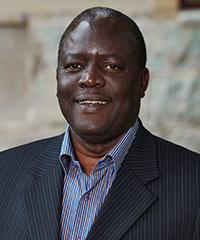
Professor Stephen G Agong
Stephen G Agong is Director Mistra Urban Futures Local Interaction Platform, Kisumu and Vice-Chancellor, Jaramogi Oginga Odinga University of Science and Technology (JOOUST), Kisumu. Stephen is a horticulturalist and leader with over thirty years of university teaching, research and community outreach. His wide experience in sustainable urban development, management and leadership arises from his chairmanship of Kisumu Action Team (KAT) that evolved into Mistra Urban Futures platform in Kisumu. He has initiated and supervised projects at community level towards socio-economic development and livelihood improvement. He has long experience in research and policy with exposure to national, regional and international research programmes.
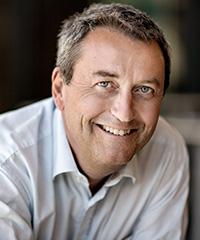
Professor Stefan Bengtsson
President and CEO of Chalmers University of Technology, Gothenburg. He is professor of solid-state electronics, with a research interest in micro- and nano-electronics, primarily silicon-based materials and devices. He has published more than 100 scientific articles in international journals and conference proceedings. In his academic career he has hold positions at Chalmers University of Technology and Malmö University and he has spent a period as guest professor at Institute National Polytechnique in Grenoble, France. Stefan Bengtsson has academic leadership experience from being vice-chancellor at Malmö University (2011-2015), first vice president/pro-rector (2007-2011) and deputy CEO (2009-2011) at Chalmers and from periods as department head at Chalmers.
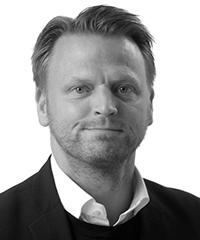
Klas Groth
Expert Urban Planning and Design. Mr Groth is an architect/urban planner and designer, with experience of urban development, urban planning and design both in Sweden and internationally. In addition to the City Planning Administration in Stockholm, Sweden, he has worked for Sida, as consultant and during 2011-2013 he was the Urban Advisor to the SymbioCity Approach, a conceptual framework and methodology aiming to promote sustainable urban development. He is a previous member of the board of Mistra Urban Futures, and most recently, he worked as technical advisor at the Urban Planning and Design Branch of UN-Habitat in Nairobi, supporting implementation of the organization’s urban programme in Kenya. Klas is a member of the Swedish Association of Architects and the Swedish Association of Town and Regional Planning.
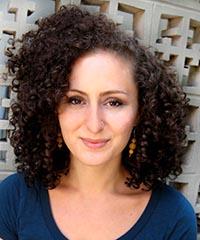
Liza Rose Cirolia
Researcher at the African Centre for Cities. Her work is largely focused on the social, political, technical and institutional dimensions of sustainable human settlements and urban infrastructure in African cities. Liza Rose has worked extensively on housing policy in South African cities. She has conducted in depth research and policy development on the Emergency Housing Programme and temporary relocation areas, the Finance Linked Individual Subsidy Programme and the Gap Market, township residential market development, and the upgrading of informal settlements. Since 2012, Liza Rose has coordinated the Sustainable Human Settlements CityLab. The Lab aims to ‘coproduce knowledge’ on complex issues of policy and practice. Liza Rose is also working on a PhD entitled ‘Financing the Just City: a Socio-technical Study of Public Finance Configurations in Cape Town and Kisumu’.
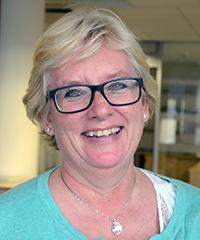
Mrs Helene Holmström
Helene represents the City of Gothenburg and is responsible for integrations questions in the city, and mainly for questions about migrants and refugees. Helene represents the City of Gothenburg and is responsible for integrations questions in the city, and mainly for questions about migrants and refugees. Helene been working with refugee and migrations questions on a municipality level for more than 25 years, both as a teacher and a principle, more strategically at the City Office and since about a year as Head of Operations. Her focus now is mainly on a strategical level on integration questions and unaccompanied minors, but Helene also been working with the arrival of asylum seekers to Gothenburg, practically and strategically.
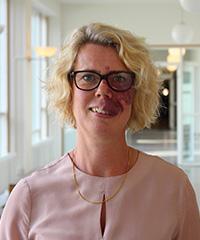
Postdoctor, Eva Maria Jernsand
Eva Maria is a postdoctoral researcher in marketing at School of Business, Economics and Law at University of Gothenburg and affiliated with the Centre for Tourism at the same university. Her research interests include place branding, tourism experiences, participation, design, innovation and sustainable tourism development. During her PhD studies, she worked in collaboration with other PhD students and the tour guide organizations in Dunga and Kisumu county for sustainable tourism development, for instance, the inclusion of women in tour guiding.
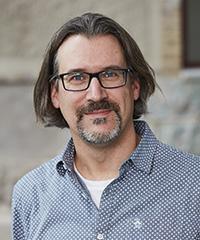
Dr. Magnus Johansson
Senior lecturer in environmental science at department of urban studies, Malmö university. Magnus is the former director for the platform (2016 – 2017), and work researcher, Mistra Urban Futures Local Interaction Platform, Skåne, with a specific focus on sustainable neighborhoods. Magnus has a PhD in pedagogy from Lund University, and his research focus on conditions for co-production in urban development, He has led several research circles, and has a long experience of on-going evaluations of sustainable urban developmental projects. Magnus currently work with an article that discuss the concepts of municipal PhDs as a mean for collaborative knowledge development through collaboration between academia and municipalities.
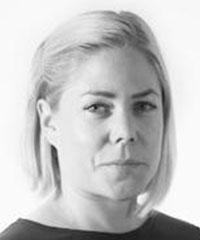
Doctoral student, Helena Kraff
Currently finalising her PhD at the Academy of Design and Crafts (HDK), University of Gothenburg. During her PHD studies she has worked in a participatory and transdisciplinary project in close collaboration with other PhD students and local stakeholders in Dunga, Kisumu, Kenya. Her main research focus is participatory design, participatory research and sustainable tourism development.
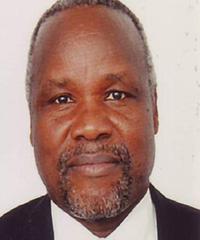
Professor Dominic Makawiti
Kenyan nationality, holds a University of Nairobi BSc degree in Chemistry and Biochemistry (First Class Honours) 1979, a University of London (Kings College School of Medicine and Dentistry) PhD degree in Reproductive Biochemistry 1984, a University of Nairobi Master of Business Administra-tion degree (MBA) 2011. He served as Chairman of the Department of Biochemistry; Associate Dean, Pre-Clinical Departments; Dean, School of Medicine; Deputy Vice-Chancellor (Academic Affairs), Maseno University and Vice-Chancellor of Maseno University.Prof. Makawiti has also served as Secretary, Natural Products Research Network for Eastern and Central Africa-Kenya (NAPRECA-K); Secretary, Biochemical Society of Kenya; Chairman, Biochemical Society of Kenya; President, Federation of African Societies of Biochemistry and Molecular Biology; Treasurer, Kenya National Acad-emy of Sciences; Vice-Chairman, Kenya National Academy of Sciences; Member, Board of Governors, Kenya Science Teachers College; Member and later Chairman, International Council for Science (ICSU) Regional Committee for Africa; Chairman, Public Universities Vice-Chancellors Committee; Member of the Board of Directors, Higher Education Loans Board; Treasurer, African Academy of Science; Chair, Board of Trustees, Kisumu Local Interaction Platform (KLIP). Prof. Makawiti is a Member of the Institute of Biology (MIBiol), a Chartered Biologist (CBiol), a Fellow of the Kenya National Academy of Sciences (FKNAS) and a Fel-low of the African Academy of Sciences (FAAS). He has been awarded with the Head of State Commendation (HSC) and Elder of the Burning Spear (EBS) by His Excellency, the President of the Republic of Kenya.
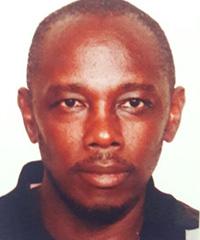
Professor George Mark Onyango
Senior lecturer and professor at Maseno University and a researcher, Mistra Urban Futures Local Interaction Platform, Kisumu. George is an urban and regional planner with years of experience in facilitating community participation in urban and rural development. He has worked across Africa in facilitating developmental research interventions and building institutional capacities in several fields as: strategic planning and management, institutional development, performance management, monitoring and evaluation, spatial planning and development and urban policy.
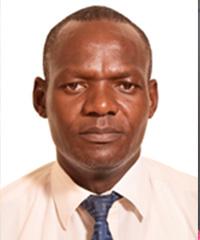
Dr. Michael Oloko
Dean of School of Engineering and Technology at Jaramogi Oginga University of Science and Technology (JOOUST), and Deputy Director (Research), Kisumu Local Interaction Platform (KLIP). His research interests include; environmental engineering, Integrated Water Resources Management (IWRM), Renewable Energy Technology, Urban Agriculture and Waste Management. He has participated and led research initiatives in urban areas including Kisumu (Kenya), Dar es Salaam (Tanzania), Managua (Nicaragua) and Sao Paulo (Brazil). Has experience in spearheading international research collaborations and, in the last five years, attracted research funds from SERVIR/RCMRD, Swedish-ICLD, Formas Research Council/Swedish Research Council, Social Sciences and Humanities Research Council of Canada, KLIP and Lake Victoria Basin Commission (LVBC).
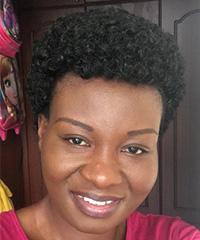
Dr. Lilian Omondi
Maseno University. A lecturer, researcher, and development consultant with years of experience dealing with special interest groups i.e. youth, women and PLWHAs. Has been involved in facilitation of community development initiatives in various parts of the East African Region. These include trainings in relief/disaster management and participatory planning and action, strategic planning, results based management, monitoring and evaluation, Gender Mainstreaming, Workplace Policy Development.
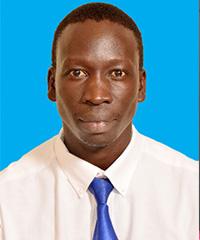
Dr. Frankline Awuor Otiende
Lecturer in the School of Spatial Planning and Natural Resources Management of Jaramogi Oginga Odinga University of Science and Technology. He has been working at the University since 2013. He also couples as a researcher at Kisumu Local Interactions Platform (KLIP). Dr. Otiende is a range ecologist having graduated from the University of Nairobi with a B.Sc and M.Sc in Range Management. He has a PhD in Planning from Jaramogi Oginga Odinga University of Science and Technology. Frankline is passionate about research interests in wildlife, solid waste management and food security.
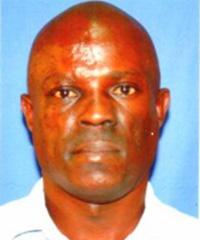
Dr. Fredrick Z. A. Odede
Lecturer and researcher at the School of Humanities and Social Sciences, Affiliate lecturer and researcher at School of Spatial Planning and Natural Resource Management in Jaramogi Oginga Odinga University of Science and Technology (JOOUST), Corporate Member of The British Institute in Eastern Africa, Corporate member of IFRA, Member of AFRICOM, ICCROM, ICOMOS, Expert on Cultural Heritage and Natural Resource Management and Environmental Impact Assessment. Fredrick Z.A. Odede has PhD in Planning from Jaramogi Oginga Odinga University of Science and Technology, and Master of Arts Degree in History from University of Nairobi and a Bachelor of Arts Degree from University of Nairobi, Kenya. A researcher in collaboration with Swedish Universities under Kisumu Local Interaction Platform (KLIP)-MISTRA URBAN FUTURES (M-UF) projects in Culture, Ecotourism, Marketplace and Green Design for the City of Kisumu and its environs. As a consultant, Fredrick Odede has engaged in the development of Siaya County Spatial Plan and GIS Mapping.
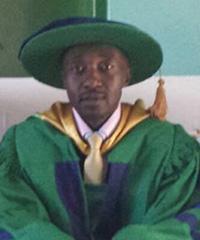
Dr. Fredrick Owino
Joined Jaramogi Oginga Odinga University of Science and Technology as (JOOUST), an Assistant Lecturer in the School of Spatial Planning and Natural Resource Management. Before joining JOOUST, he served as a Physical Planning Officer in charge of Kericho County. He has wide experience in the civil service having served as a Designer in the Ministry of Public Works deployed at the Kenya Building Research Centre and as a Physical Planning Officer in the Ministry of Lands headquarters in Nairobi and West Pokot County. Dr. Owino received his Bachelor of Arts in Design from the University of Nairobi. He benefited from the University of Nairobi Scholarship to study for a Master of Arts degree in Urban and Regional Planning. He completed his Doctor of Philosophy degree in Planning from Jaramogi Oginga Odinga University of Science and Technology after being awarded a scholarship by SIDA and Mistra Urban Futures (Kisumu Local Interaction Platform). His research interests include green planning, human settlement planning and transportation. He has been instrumental in developing a Bachelor of Landscape Design programme as well as in revising the Spatial Planning programme at JOOUST.
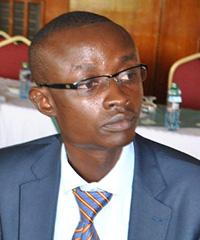
Alfred Omondi Otom
Coordinator, Mistra Urban Futures Local Interaction Platform, Kisumu responsible for overseeing the operations of KLIP Secretariat including office management, coordination of meetings and functions, preparing research concept notes for evaluation and peer review, processing research proposals accepted for funding and administering the research projects. Prior to his engagement at KLIP, Alfred worked at the Intergovernmental Development on Climate Prediction and Applications Centre (ICPAC), where he was seconded to the United Nations Office in Nairobi under the UNESCO PEER UNON project for Somalia. He has also worked as a research assistant for the Drought and Early Warning Forecasting project. Alfred holds a Masters and Bachelor’s degree in Meteorology from the University of Nairobi with a thesis based on Climate Change.
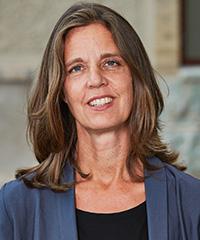
Artistic Professor Henrietta Palmer
Deputy Scientific Director, Mistra Urban Futures. She is an architect and Artistic Professor of Urban Design at Chalmers University of Technology. The basis of her work is from architectural practice in Sweden and Spain working with architectural and urban projects of all scales. From 2005 to 2015 she was Professor of Architecture at the Royal Institute of Art, Stockholm, where she initiated and developed the post-master’s programme, Resources, as a unique interdisciplinary research space on the challenges of our urban futures, with a particular focus on the cities of the Global South and their spatial becoming. Her current research focuses on urban transformation processes, migration and the visual language of change.
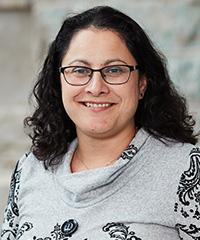
Professor Beth Perry
Urban Institute, University of Sheffield, Director, Mistra Urban Futures Local Interaction Platform, Sheffield-Manchester. Beth is an interdisciplinary urbanist, whose current research focuses on critically interrogating and developing pathways to more just sustainable urban futures, with an emphasis on urban governance, urban knowledge and the roles of universities. She leads a number of research projects funded by the UK Research Council, such as Cultural Intermediation in the Creative Urban Economy and Cultural Heritage. Beth is the Director of the Urban Processes, Resilient Infrastructures and Sustainable Environments research centre.
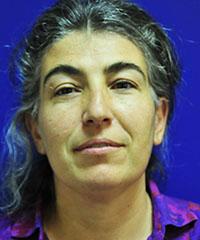
Laura Petrella
Architect and urban planner trained at the Istituto Universitario di Architettura di Venezia IUAV, in Italy. After specialising in urban and regional planning for developing countries, she worked in Colombia, Niger, and the Venice Lagoon, before joining UN-HABITAT Slum Upgrading Programme (1995). With UN-HABITAT she has been working on urban poverty and has been in charge of the Safer Cities Programme (2001-2010) where she managed crime prevention activities in over 10 cities across the world. In 2010 she took on the task of developing UN-Habitat urban planning work, in partnership with various stakeholders at global and country level. In January 2012 she became the leader of the City Planning, Extension and Design Unit in UN-Habitat. She has been working with cities and national governments, as well as with urban stakeholders from the private and community sector, to develop meaningful planning activities, tools and approaches that leverage urban planning for local development and transformation. She is interested in the intersection between planning and governance and in the environmental and social dimensions of spatial development and patterns. Her work has revolved around the development of new urban planning capacities in developing countries, planning reform and the implementation of plans as tools for social and economic development. In Kenya she has been engaging with the cities of Nairobi and Kisumu and with several counties in their planning work and has been supporting the development of planning capacities in the devolved county governments. With a team of over 30 staff and consultants, CPEDU is active in all continents. As part of her work, she supervise two flagship activities of UN-Habitat: The Urban Planning and Design Lab which has in the past 3 years developed into a provider of planning services for development projects and has activities in over 30 cities; and the Global Public Space Programme which is spearheading the implementation of SDG 11.7 on Public Space with local governments and partners in over 50 cities.
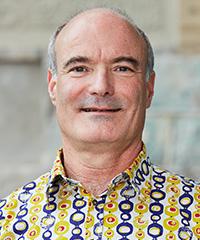
Professor David Simon
Director, Mistra Urban Futures and Guest Professor, Chalmers University of Technology, Gothenburg and Professor of Development Geography, Royal Holloway, University of London. He is an interdisciplinary social scientist with abiding interests in and numerous publications on the intersections of theory, policy and practice in urbanisation and urbanism, development studies and sustainability. For the last decade his research has focused mainly on urban climate change challenges and urban greening strategies, especially in Africa, and on the dynamics of peri-urban areas and urban regions in theory and practice. His research experience spans many parts of Africa, Asia and Europe. He is editor of and a contributor to Mistra Urban Futures' flagship book, Rethinking Sustainable Cities, published in autumn 2016.
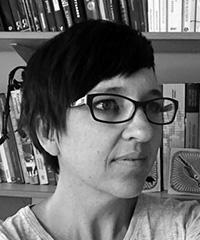
Dr. Rike Sitas
Researcher, African Centre for Cities, and Coordinator, Mistra Urban Futures Local Interaction Platform, Cape Town. Rike also coordinates UrbanAfrica.Net, Power of Place, and the ACC Academic Seminar Series. Straddling the academic world of urban studies and creative practice, Rike is fascinated by the intersection of culture and cities, and more specifically on the role of art in urban life. Her research explores artful urban enquiry and alternative forms of creative knowledge production. In addition she explores the impact of the creative economy and cultural policy. A large part of this focus means unpacking the notions of public space and public life in Southern cityness.
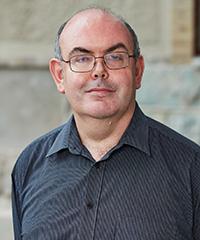
Dr. Warren Smit
Research Manager, African Centre for Cities and Director, Mistra Urban Futures Local Interaction Platform, Cape Town. His research interests revolve around urban planning and urban management in cities of the global South, and urban policy discourses, such as how ideas emerge, are adopted and adapted, and used to construct problems and solutions, and then turned into policies and practices. An important strand of his work is how to create policy-relevant knowledge around understanding and achieving more equitable cities and urban governance – for example, how decisions are made, and the relation of this to institutional structures and policies.
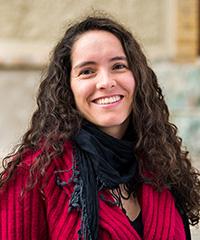
Sandra Valencia
Lead researcher, Mistra Urban Futures. Sandra Valencia is a postdoctoral researcher at Mistra Urban Futures leading a comparative project on the city-level implementation of Agenda 2030 and the New Urban Agenda. She has an interdisciplinary background in the natural and social sciences. She also has experience in policy and project implementation particularly related to climate change adaptation in the Latin American and Caribbean region. Sandra completed her PhD in Sustainability Science from Lund University in 2016. Her PhD thesis explored the socio-environmental vulnerability of low-income inhabitants in Peri-Urban areas in Colombia.